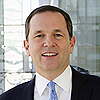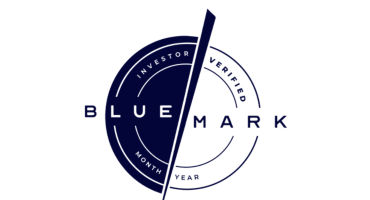This website is not suitable for individual (retail) investors. If you are a retail investor, please contact your financial advisor.
You are about to enter a website for professional investors and financial advisers and/or intermediaries and the information contained herein is not suitable for retail investors. Any person unable to accept these terms and conditions should not proceed any further. Before making any investment decision, you shall read carefully the offering documents of each Fund.
The use of Wellington.com (this “Website”) is subject to the following terms and conditions (the “Terms”). After you have read and understood these Terms, you may click “Accept” to confirm that you agree to the Terms.
By clicking “Accept” you:
(i) expressly acknowledge that you have read and understood the Terms and agree to abide by them;
(ii) represent and warrant that the jurisdiction you have selected is the applicable jurisdiction for the intended investment activities, and that you are not resident in the United States of America and are not a U.S. Person;
(iii) confirm that you are accessing this Website in compliance with the laws and regulations of the jurisdiction you have selected, and all other applicable laws, rules and regulations;
(iv) represent and warrant, if applicable, that you are authorised to accept these Terms and use or access (or attempt to use or access) this Website on behalf of your employer, your client, or both, and that in doing so you are acting within the scope of your duties and, at all times, on behalf of your employer, your client or both; and
(v) hereby represent and warrant that you are not a private investor or retail client (as defined in the Markets and Financial Instruments Directive 2014/65/EU as amended or updated (“MiFID”)) and that you shall not in any circumstances use or rely on any information displayed on this Website for your own personal investment use.
If you do not agree with these Terms you must refrain from using this Website.
In these Terms, references to “you” and “your” are references to any person using or accessing (or attempting to use or access) this Website or, as the context requires, the legal entity on whose behalf a user uses or accesses (or attempts to use or access) this Website. References to “Wellington Management”, “we” and “us” are references to Wellington Management Europe GmbH.
By entering this Website, you acknowledge and agree to be bound by each of the Terms, together with any additional terms and conditions that apply to individual webpages, documents or other attachments contained within this Website (together, the "Conditions of Use"). If there are any Conditions of Use that you do not understand or agree with, you must leave this Website or the webpage in question (as applicable) immediately and delete immediately from the memory of your computer all documents from this Website.
1. About this Website: The information on this Website is issued and communicated by Wellington Management Europe GmbH (“Wellington Management,” “we” and “us”), which is authorised and regulated by BaFin the Federal Financial Supervisory Authority of Germany. This Website contains information about various umbrella funds (each an “Umbrella Fund” and together the “Umbrella Funds”) and their sub-funds (the “Funds”) which have been registered, or otherwise notified, for public distribution and marketing in the jurisdiction you have selected.
Please note that the fact of such registration or notification does not mean that any regulator (including the Commission de Surveillance de Secteur Financier (CSSF), the Central Bank of Ireland or any national regulator of your jurisdiction) has determined that the Funds are suitable for all or any investors. The Funds referred to on this Website may not be suitable investments for you and you should therefore seek professional investment advice before making a decision to invest in any of the Funds.
2. Access to this Website: In order to access this Website, you have been asked to select the jurisdiction which is applicable for the intended investment activities. Your selection will be used to determine the information that you will be able to access on this Website. You hereby represent and warrant to Wellington Management that the information that you have provided is true, accurate and complete and you undertake to notify us of any change to such information. Failure to provide us with accurate information will be treated as a material breach of these Terms. Certain Funds may not be available in all geographical locations and so information about certain Funds may not be available to all users of this Website. You must not attempt to gain access to areas of this Website other than those made available to users in the jurisdiction you selected. If the jurisdiction you should select changes, you must access this Website selecting your new jurisdiction. You should be aware that this may result in you not being able to access (i) information in relation to the same Funds as previously, or (ii) any information at all. Please note that the fact of selecting a jurisdiction does not mean that all or any of the Funds in relation to which information is made available, have been deemed suitable for you.
When using this Website you must comply with all applicable local, national and international laws and regulations including those related to data privacy, international communications and exportation of technical or personal data. It may be unlawful to access or download the information contained on this Website in certain countries and the Umbrella Funds, Wellington Management and its affiliates disclaim all responsibility if you access or download any information from this Website in breach of any law or regulation of the United Kingdom, the jurisdiction in which you are residing or domiciled or the jurisdiction from which you access the Website.
If you are acting as a financial adviser or intermediary, you agree to access this Website only for the purposes for which you are permitted to do so under applicable law. If you are acting as a financial adviser or intermediary and provide services to clients categorised as retail clients under MiFID, you agree that you will not share with or provide to your retail clients any information available on this Website that has not been approved for retail use and is not otherwise suitable for your retail clients.
Wellington Management reserves the right to suspend or withdraw access to any page(s) included on this Website without notice at any time and accepts no liability if, for any reason, these pages are unavailable at any time or for any period.
3. No Market Timing: You agree not to engage in any “market timing” practices with respect to your investment in any Fund and shall take all reasonable steps to ensure that no user authorised to access this Website on your behalf engages in any such market timing practices. For these purposes, “market timing” shall include engaging in any trading strategy with the intention of taking advantage of short term changes in market prices including (without limitation) by engaging in: (i) excessive trading, (ii) late trading or (iii) market abuse.
4. U.S. Persons: Interests in the Funds are not being offered, and will not be sold, within the United States or to, or for the account or benefit of, any U.S. Person. The term U.S. Person shall have the meaning given to it in Regulation S under the United States Securities Act of 1933, as amended, and includes, among other things, U.S. residents and U.S. corporations and partnerships.
5. Selling Restrictions: The distribution of the information and documentation on this Website may be restricted by law in certain countries. This Website, and the information and documentation on it, are not addressed to any person resident in the territory of any jurisdiction where such distribution would be contrary to local law or regulation. Not all the Funds in relation to which information is available on this Website are available in all geographical locations and so not all areas of this Website will be accessible to all users. The Funds are not available, and offering materials relating to them will not be distributed, to any person resident in any jurisdiction where such distribution would be contrary to local law or regulation.
6. No Investment Advice: The information on this Website is provided for information only and on the basis that you will make your own investment decisions.
Nothing contained on this Website constitutes, and nothing on this Website should be construed as, investment advice or a recommendation to buy, sell, hold or otherwise transact in any investment including interests in the Funds. It is strongly recommended that you seek professional investment advice before making any investment decision.
The information on this Website does not take account of any investor's investment objectives, particular needs or financial situation. Investment in the Funds may not be suitable for you. In addition, nothing on this Website shall, or is intended to, constitute financial, legal, accounting or tax advice.
Unless agreed separately in writing with a client, Wellington Management and its affiliates neither provide investment advice to nor receive and transmit orders from investors in the Funds nor do they carry on any other activities with or for such investors that constitute “investment services” or “ancillary services” for the purposes of MiFID.
You should consider whether an investment fits your investment objectives, particular needs and financial situation before making any investment decision. You should also inform yourself as to (a) the possible tax consequences, (b) the legal requirements and (c) any foreign exchange restrictions or exchange control requirements which you might encounter under the laws of the countries of your citizenship, residence or domicile and which might be relevant to the subscription, holding, transfer or disposal of interests in the Funds.
Any opinion, article, comment, financial analysis, market forecast, market commentary or other such information which is published on this Website is not binding on Wellington Management or its affiliates.
7. Past Performance; Forecast; Simulation: To the extent that this Website contains any information regarding the past performance and/or forecast of the Funds, such information is not a reliable indicator of future performance of these Funds and should not be relied upon as a basis for an investment decision. To the extent that this Website contains any information regarding simulated past performance, such information is not a reliable indicator of future performance and should not be relied on as the basis for an investment decision. Investment results for each Fund may vary.
The value of investments and the income from them can go down as well as up and investors may not get back the amount originally invested and may lose all of their investment. The value of investments in the Funds may be affected by the price of underlying investments. Exchange rate changes may cause the value of overseas investments to rise or fall.
8. Price Information: All prices or values may not reflect actual prices or values that would be available in the market at the time provided or at the time you may decide to purchase or sell an interest in a particular Fund.
9. Risk Warnings: There are significant risks associated with an investment in any of the Funds. Investment in the Funds is intended only for those investors who can accept the risks associated with such an investment (including the risk of a complete loss of investment). You should ensure that you have fully understood such risks before taking any decision to invest.
These Terms do not represent a complete statement of the risk factors associated with an investment in the Funds. The offering documents for each Fund contain risk warnings which are specific to the relevant Fund. You should consider these risk warnings carefully and take appropriate investment advice before taking any decision to invest.
10. Offering Documents: The terms of any investment in a Fund are governed by the documents establishing such terms. An application for interests in any of the Funds should only be made having fully and carefully read the offering documents, which are the relevant prospectus, key investor information document, the latest financial reports and any other offering documents for the relevant Fund which are available on this Website and upon request from the fund representative in your jurisdiction and specified in the prospectus for the relevant Fund.
It is your responsibility to use the offering documents and by making an application to invest in a Fund you will represent that you have read the prospectus for the relevant Fund, the appropriate key investor information document for the Fund and any other applicable offering document and will agree to be bound by its contents.
11. Information on this Website: This Website, and the information on it, are provided for information purposes only and do not constitute an invitation, offer or solicitation to engage in any investment activity including to buy, hold or sell any investment including any interests in the Funds.
The information on this Website is provided in good faith and reasonable care has been taken to ensure that such information is accurate, current and fit for its intended purpose. To the extent that any information on this Website relates to a third party, this information has been provided by that third party and is the sole responsibility of such third party and, as such, Wellington Management and its affiliates accept no liability for such information. However, this does not affect the Wellington Management’s responsibilities pursuant to Section 55 of the German Interstate Broadcasting Treaty (Rundfunkstaatsvertrag - RStV). No representation or warranty of any kind regarding the accuracy, adequacy, validity, completeness or timeliness of the information on this Website or the error-free use of this Website is given and, to the extent permitted by applicable laws, no liability is accepted for the accuracy or completeness of such information. No warranty of any kind, express or implied, including but not limited to the warranties of non-infringement of third-party rights, title, merchantability, fitness for a particular purpose, and freedom from computer virus is given in conjunction with the information, materials, products, and services on the Website. Any views expressed herein are those of the author(s), are based on available information, and are subject to change without notice. Individual portfolio management teams may hold different views and may make different investment decisions for different clients. Wellington Management does not warrant that the Website will meet your needs. You agree to assume the entire risk as to your use of the Website. Any person who acts upon, or changes his investment position in reliance on information contained on this Website, does so entirely at his own risk. In the event of any inconsistency between the information on this Website and the terms of the relevant offering documents, the terms of the offering document shall prevail.
All content on the Website is subject to modification from time to time without notice save for any mandatory disclosure requirements. Please contact Wellington Management (using the details in the “Contact Us” section below) for further information regarding the validity of any information contained on this Website. This Website and most of the documentation contained within it is provided in the English language and you represent and warrant that you understand the English language.
12. Conflicts of Interest: Wellington Management, its affiliates and their directors, officers, employees or clients may have or have had interests or long or short positions in any investment product or other financial instruments underlying any investment product referred to on this Website and may at any time make purchases and/or sales in them as principal or agent. In addition, Wellington Management and/or its affiliates may act or have acted as market maker in any investment product, or financial instruments underlying such investment product or entered into an arrangement to hedge the market risk associated with the investment products. The Wellington Management group has conflicts of interest policies in place which specify the procedures that they follow and the measures that they have adopted in order to avoid such conflicts or to manage such conflicts in a way that ensures fair treatment for clients.
13. Monetary Benefits: You agree that we may, to the extent permitted by applicable laws and regulations, share charges or commission with affiliates of Wellington Management or other third parties, or receive remuneration from them, in respect of transactions you carry out in relation to the Funds described on this Website. Where relevant, we may disclose such arrangements to you. Details of any such arrangements are available on request.
14. Liability: No warranty is given that the contents of this Website are compatible with all computer systems or browsers or that this Website shall be available on an uninterrupted basis.
The internet is not a completely reliable transmission medium and none of the Umbrella Funds, Wellington Management or any of its affiliates accept any liability for any data transmission errors such as data loss or damage or alteration of any kind or for the security or confidentiality of information transmitted across the internet to or from the Umbrella Funds, Wellington Management or any of its affiliates. Any such transmission of information is entirely at your own risk and any material downloaded from this Website is downloaded at your own risk.
The information on this Website is provided “as is” and “as available”. To the extent permitted by law, no guarantee or representation, express or implied, is made as to the accuracy, validity, timeliness, completeness or continued availability of any information made available on the Website. The Umbrella Funds, Wellington Management, its affiliates and each of their directors, officers, employees and/or agents expressly exclude all conditions, warranties, representations, and other terms which might otherwise be implied by statute, common law or the law of equity to the fullest extent permitted by applicable law or regulation.
In no event will the Umbrella Funds, Wellington Management, or any of its affiliates be liable to any person for any direct, indirect, special or consequential damages, losses or liabilities arising out of any use of, or inability to use, this Website or the information contained on it including, without limitation, lost profits, business interruption, any failure of performance, error, omission, interruption, defect, delay in operation or transmission, computer virus, line or system failure, loss of programs or data on your equipment or otherwise, even if the Umbrella Funds, Wellington Management or its affiliates is expressly advised of the possibility or likelihood of such damages, losses or liabilities, unless such damages, losses or liabilities are due to the Umbrella Funds’, Wellington Management’s or its affiliates’ negligence, wilful default, fraud or material breach of the Umbrella Funds’, Wellington Management’s or its affiliates’ obligations under applicable law or regulation.
This does not affect the liability of the Umbrella Funds, Wellington Management, or its affiliates for any loss or damage which cannot be excluded or limited under applicable law.
15. Indemnification: As a condition of your use of the Website, you agree to indemnify and hold the Umbrella Funds, Wellington Management, and its affiliates, and their respective partners, directors, employees, and agents harmless from and against any and all claims, losses, liability, costs, and expenses (including but not limited to legal fees) arising from your use of the Website or from your violation of these Terms, as far and to the extent that you are responsible for such claims, losses, liability, costs, and expenses under German law (Vertretenmüssen). This indemnification does not apply if such claims, losses, liability, costs or expenses are due to the Umbrella Funds’, Wellington Management’s or its affiliates’ negligence, wilful default, fraud or material breach of the Umbrella Funds’, Wellington Management’s or its affiliates’ obligations under applicable law or regulation.
16. Intellectual Property: The entire content of this Website is subject to copyright with all rights reserved. All materials on this Website are owned or licensed by the Umbrella Funds, Wellington Management, its affiliates and/or its third-party providers and are protected by UK and international intellectual property laws. Unless otherwise indicated, all service marks, trademarks, and logos appearing on this Website are the exclusive property of the Wellington Management group. You may not copy, display, distribute, download, license, modify, publish, repost, reproduce, sell, transmit, use to create a derivative work, or otherwise use for public or commercial purposes the content of this Website without the prior written permission of Wellington Management.
17. Privacy: Please see our privacy policy which is contained on this Website for information about how the Wellington Management group protects your personal data, including personal data collected through this Website. You will be asked to agree to the terms of our privacy policy when selecting your relevant jurisdiction.
18. Cookies: When you visit this Website, a Wellington Management group company server will record your IP address together with the date, time, page visited and duration of your visit. Please note that the Wellington Management group uses cookies on this section of the Website. Cookies are small pieces of software that are issued to your computer or device and that store and sometimes track information about your use of the site. Cookies on this Website may collect a unique identifier, user preferences and profile information and membership information from which it is possible to identify individual users. The Wellington Management group also uses cookies to collect general usage and volume statistical information that does not include personally identifiable information. Some cookies may remain on the user’s computer after they leave this Website (these are known as persistent cookies). For more information about cookies including how to set your internet browser to reject cookies, please go to www.allaboutcookies.org or http://youronlinechoices.eu.
By using this Website, you agree that the Wellington Management group can place cookies on your device which collect the data and for the purposes described above and as further detailed in the Cookie Policy. If you delete cookies relating to this Website, we will not remember things about you, you will be treated as a first-time visitor the next time you visit this Website and we will not be able to tailor your experience of this Website.
The Wellington Management group has engaged one or more third party service providers to track and analyze usage and volume statistical information from visitors to this Website. The service provider(s) set cookies on behalf of the Wellington Management group. The Wellington Management group may re-associate the information provided by the technologies directly above with other personal information we hold about you. By using this Website, you agree that third parties can place cookies on your device as described above.
19. Your use of this Website: You must not use this Website (or permit or procure others to use it) as follows:
- for any unlawful, improper or illegal purpose or activity;
- to communicate or receive information that is obscene, indecent, pornographic, sadistic, cruel, or racist in content, of a sexually explicit or graphic nature, which promotes or incites discrimination, hatred or racism or which might be legally actionable for any reason;
- in a manner intended to threaten, harass, or intimidate;
- to violate Wellington Management’s or any third party's copyright, trademark, proprietary or other intellectual property rights;
- to damage Wellington Management’s name or reputation or that of Wellington Management’s affiliated companies or any third parties;
- to impersonate any of Wellington Management’s employees or other person or use a false name while using this Website or implying an association with Wellington Management;
- to penetrate Wellington Management’s security measures or other entities' systems ("hacking");
- to transmit unsolicited voluminous emails (for example, spamming) or to intercept, interfere with or redirect email intended for others using this Website;
- to generate excessive amounts of internet traffic, to interfere with Wellington Management’s network or other’s use of this Website or to engage in activities designed to, or having the effect of, degrading or denying service to other users of this Website or others;
- to introduce viruses, worms, harmful code and/or Trojan horses onto the internet or into this Website or any other entity’s systems and it is your responsibility to ensure that whatever you download or select for your use from this Website is free from such items;
- to post or transmit information that is defamatory, fraudulent or deceptive including, but not limited to, scams such as "make-money-fast" schemes or "pyramid/chain" letters; and/or
- to transmit confidential or proprietary information, except solely at your own risk.
20. Linked Websites: Links to websites operated by third parties are provided for information only and do not constitute any form of advice, endorsement or recommendation of such websites or the material on them. Wellington Management will not regularly review such third party websites or the material on them. However, if Wellington Management notices, or is notified, of any such third-party content to cause a private or criminal responsibility, Wellington Management will review such linked content and delete the relevant link if such content would cause private or criminal responsibility. Please note that when you click on any external site hypertext link you will leave this Website. You should review the privacy statements of such websites before you provide any personal or confidential information.
21. Website Security and Restrictions on Use: As a condition to your use of this Website, you agree that you will not, and you will not take any action intended to: (i) access data that is not intended for you; (ii) invade the privacy of, obtain the identity of, or obtain any personal information about any other user of this Website; (iii) probe, scan, or test the vulnerability of this Website or Wellington Management’s network or breach security or authentication measures without proper authorisation; (iv) attempt to interfere with service to any user, host, or network or otherwise attempt to disrupt our business; or (v) send unsolicited mail, including promotions and/or advertising of products and services. Unauthorised use of the Website, including but not limited to unauthorised entry into Wellington Management’s systems or misuse of any information posted to a web site, is strictly prohibited.
22. Amendment: Wellington Management may delete or make changes to these Terms and to the information contained on this Website at any time. Where such amendments are made, you will be required to accept any such changes in order and prior to continue to use the Website. If you do not accept such revised Terms, you may no longer be able to access this Website. If any provision of these Terms is found by any court or authority of competent jurisdiction to be illegal, void or invalid under the laws of any jurisdiction, the legality, validity or enforceability of the remainder of these Terms in that jurisdiction shall not be affected and the legality, validity and enforceability of the whole of these Terms in any other jurisdiction shall not be affected.
23. Third Parties: The Umbrella Funds, Wellington Management, and its affiliates shall have the benefit of the rights conferred on them by these Terms but otherwise no person who is not a party to these Terms may enforce its terms under the Contracts (Rights of Third Parties) Act 1999.
24. Applicable Law: These Terms and any non-contractual obligations arising from or connected with them shall be governed by, and these Terms shall be construed in accordance with, the laws of England and Wales.
25. Jurisdiction: You agree that the English courts shall have exclusive jurisdiction in relation to any legal action or proceedings arising out of or in connection with these Terms (whether arising out of or in connection with contractual or non-contractual obligations) (“Proceedings”) and waive any objection to Proceedings in such courts on the grounds of venue or on the grounds that Proceedings have been brought in an inappropriate forum. You further agree that this paragraph operates for the benefit of the Umbrella Funds, or Wellington Management and accordingly the Umbrella Funds, or Wellington Management shall be entitled to take Proceedings in any other court or courts having jurisdiction.
26. About Wellington Management Europe GmbH and the Umbrella Funds:
Wellington Management Europe GmbH i. Gr. is authorised and regulated by BaFin, the Federal Financial Supervisory Authority of Germany (Reference number: AG 22750311). Its registered office is at Bockenheimer Landstrasse 43-47, 60325, Frankfurt am Main, Germany and its VAT number is DE 326304943.
Wellington Management Funds (Ireland) Plc is an umbrella type open-ended investment company with variable capital and segregated liability between its sub-funds, incorporated with limited liability under the laws of Ireland with registered number 267944 and is authorised in Ireland as a UCITS pursuant to the European Communities (Undertakings for Collective Investment in Transferable Securities) Regulations, 2011 (S.I. No. 352) as amended from time to time. Wellington Management Funds (Ireland) Plc’s registered address is 25-28 North Wall Quay, International Financial Services Centre, Dublin 1, Ireland.
Wellington Management Funds (Luxembourg) is an open-ended unincorporated mutual investment fund (fonds commun de placement) and is governed by Part I of the Luxembourg Law of 17th December, 2010, as amended from time to time, and qualifies as a UCITS fund.
Wellington Management Funds (Luxembourg) II is an open-ended unincorporated mutual investment fund (fonds commun de placement) and is governed by the Luxembourg Law of 13th February 2007 on specialised investment funds, as amended from time to time, and qualifies as an AIF.
Wellington Management Funds (Luxembourg) II SICAV is an open-ended investment company with variable capital (societe d’investestissement a capital variable) and is governed by Luxembourg Law of 13th February 2007 on specialised investment funds, as amended from time to time, and qualifies as an AIF.
Wellington Management Funds (Luxembourg) III SICAV is an open-ended investment company with variable capital (société d’investissement à capital variable) of the umbrella type and is governed by Luxembourg law of 17th December 2010, as amended from time to time, and qualifies as a UCITS fund.
Wellington Luxembourg S.à r.l. is the appointed management company of Wellington Management Funds (Luxembourg) and Wellington Management Funds (Luxembourg) III SICAV, and alternative investment fund manager of Wellington Management Funds (Luxembourg) II and Wellington Management Funds (Luxembourg) II SICAV. Wellington Luxembourg S.à r.l. is a société à responsabilité limitée registered in Luxembourg and authorised by the Commission de Surveillance du Secteur Financier (the CSSF) as a management company authorised under chapter 15 of the Luxembourg law of 17 December 2010 on undertakings for collective investment, as amended. Wellington Luxembourg S.à r.l.’s registered address is at 33, Avenue de la Liberté, L-1931 Luxembourg.
27. Contact Us: If you have any enquiries in relation to this Website or the information on it, please contact Wellington at infofunds@wellington.com.
Effective as of 1st January 2021















